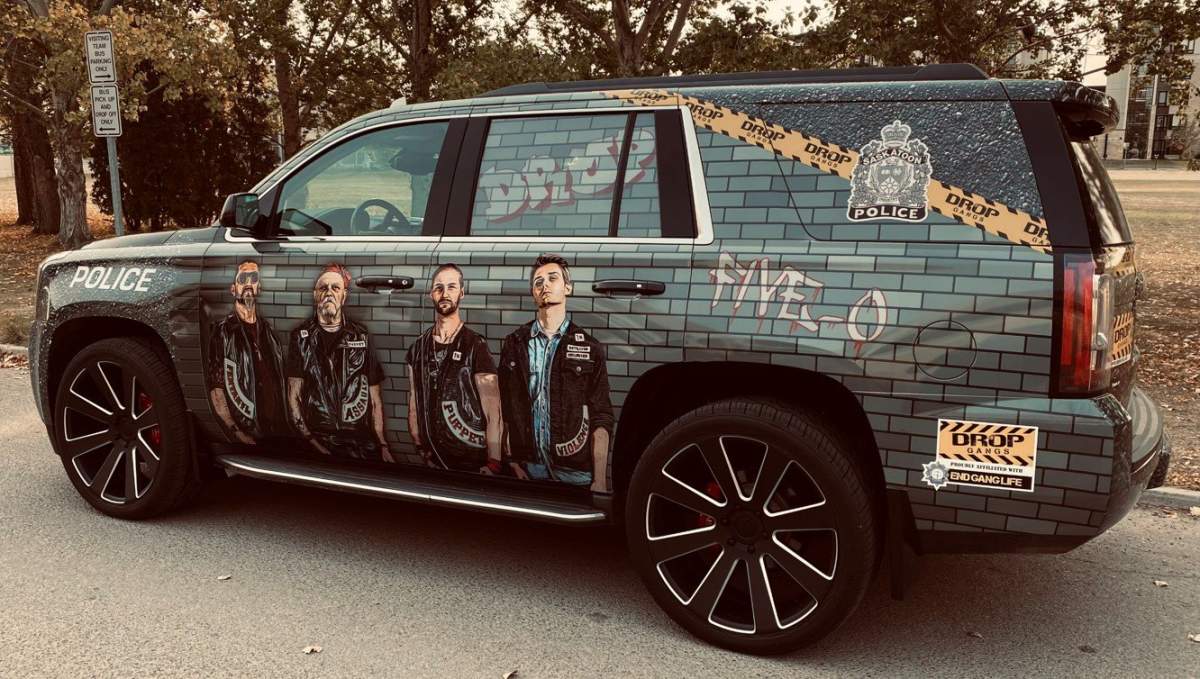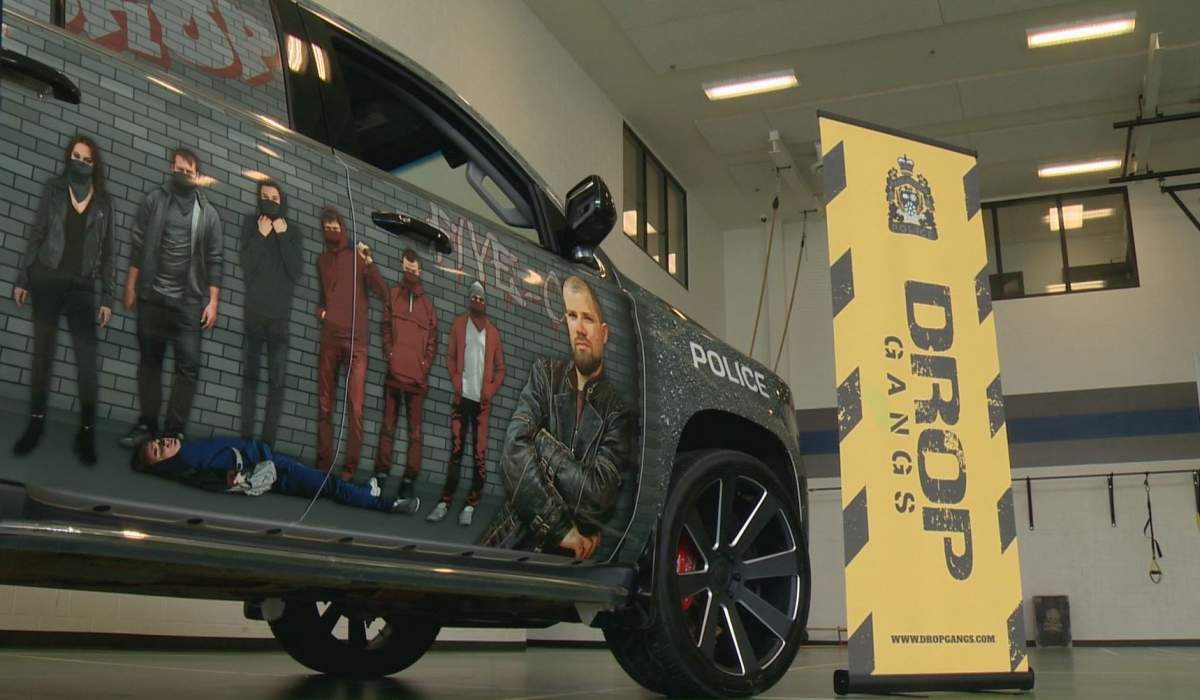The Saskatoon Police Service (SPS) is rolling out a moving billboard meant to discourage people from supporting or joining gangs.

The Drop Gangs program uses nearly $70,000 of civil forfeiture funding for a GMC Yukon depicting a cautionary tale. The SUV is plastered with illustrations including the deadly consequences of gang crimes and street gang members being used as puppets.
It comes as police have noticed an unfortunate trend in recent years, according to Supt. Patrick Nogier of the SPS Criminal Investigations Division.
“There’s been an increase in gang activity, an increase in drug activity in our communities and this is one approach that we can take on a proactive measure,” Nogier said.
The vehicle isn’t a squad car driving people to police cells, but an attempt to drive the people to a new website: www.dropgangs.com

Get daily National news
Police plan to park the vehicle at community events, high school presentations and other traditional vessels for public awareness.
Officers will also park the vehicle at scenes believed to be gang-related, including search warrant executions and events held by outlaw motorcycle gangs, said Sgt. Dave Larocque of the Integrated Intelligence Unit.
“We’re not trying to confront people,” Larocque said.
“We’re not trying to start any kind of battle in the public, but what we are sending (is) our message that these things are not doing the public any good.”
The end goals of the program are public education and helping people exit the gang lifestyle.
Since 1987, STR8 UP has been a grassroots organization in Saskatoon that helps people transition out of gang life. Though STR8 UP’s website is linked on the Drop Gangs website, it is not part of the campaign.
- 95-year-old Canadian skier still on the slopes after eight decades
- Best friends who played on Jasper hockey team remembered as ‘bright shining lights’
- Daylight saving time 2026: Here’s when you should set your clocks forward
- Return-to-work mandates sparks ‘renewed demand’ for Canadian offices: report
Larocque acknowledged there could be some duplicated services delivered by police and STR8 UP.
“I think there’s always an opportunity for overlap, but I think in the instance of reducing gang participation, I don’t think you can have too much,” he said.
The Drop Gangs campaign is modelled after the End Gang Life program in British Columbia, though the gang dynamics are different between B.C. and Saskatoon, according to gang researcher Robert Henry.
“I think this is more of a political space where (police) are seeing it as they need to do something. The community is asking them what they’re doing, so they need to be able to put that forward,” said Henry, who is also an assistant professor in Indigenous studies at the University of Saskatchewan.
He said it’s too soon to tell whether or not the SPS program will be effective, but if it works, it could create “an overflow of individuals” for community-based organizations with limited funding.










Comments
Want to discuss? Please read our Commenting Policy first.